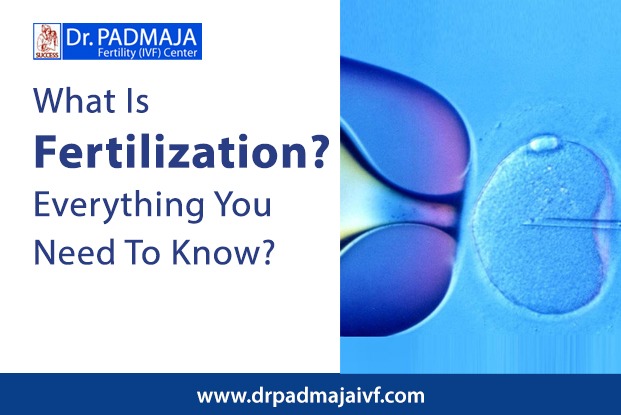Fertilization is a cornerstone of human reproduction, a fascinating biological process where life begins. It occurs when a sperm cell from a male successfully merges with an egg cell from a female, creating a zygote – the first step in the development of a new individual. Whether you’re planning a family, exploring fertility treatments, or simply curious about the miracle of life, understanding fertilization is essential. For those facing challenges in conceiving naturally, modern fertility treatments, such as those offered by the best IVF center in Hyderabad, provide a pathway to parenthood.
The Science Behind Fertilization
The first step in the multi-step fertilization process is ovulation, which is the release of a mature egg from the ovary. It travels through the fallopian tube, awaiting a sperm. During sexual activity, millions of sperm enter the female reproductive system, but only a few hundred of them make it to the egg.
The journey isn’t easy. To get to the egg, sperm must pass through the fallopian tubes’ intricate anatomy, the vagina’s acidic environment, and cervical mucus. When a sperm successfully penetrates the egg’s outer shell, fertilization takes place. The genetic material from both parents combines, forming a zygote with a unique DNA blueprint.
This zygote divides and grows, eventually implanting itself in the uterine wall, leading to pregnancy. However, for some couples, natural fertilization can be elusive, making assisted reproductive technologies like in vitro fertilization (IVF) a valuable solution.
Challenges in Natural Fertilization
Various factors can hinder natural fertilization, including:
Ovulation Disorders: Irregular or absent ovulation can prevent egg release.
Sperm Quality Issues: Low sperm count, poor motility, or abnormal morphology can limit successful fertilization.
Blocked Fallopian Tubes: Damage or blockages can obstruct the egg and sperm from meeting.
Age: As women age, fertility decreases, particularly for those over 35.
Lifestyle Factors: Stress, obesity, and exposure to toxins can negatively affect fertility.
If you or your partner face these challenges, seeking expert guidance is crucial. Facilities like Dr. Padmaja IVF Center, recognized as the best IVF center in Hyderabad, provide comprehensive fertility solutions tailored to individual needs.
What Is IVF and How Does It Help Fertilization?
IVF, or in vitro fertilization, is a revolutionary procedure designed to overcome barriers to natural conception. IVF is a controlled laboratory process that involves external fertilization. Here’s how the process works:
Ovarian Stimulation: The ovaries are stimulated to generate more eggs by fertility drugs.
Egg Retrieval: A minimally invasive technique is used to remove mature eggs from the ovaries.
Sperm Collection: A sperm sample is collected and prepared in the lab.
To fertilize, sperm and eggs are mixed together in a petri dish. Sometimes, intracytoplasmic sperm injection (ICSI) is used, where a single sperm is injected directly into an egg.
Embryo Culture: The fertilized eggs (embryos) are cultured for a few days in the lab.
Embryo Transfer: A healthy embryo is transferred into the uterus, and the remaining embryos can be frozen for future use.
Renowned fertility centers like DrPadmaja Fertility Center specialize in providing advanced IVF services, offering hope to countless couples struggling with infertility.
Why Choose Dr. Padmaja IVF Center in Hyderabad?
Hyderabad has become a fertility treatment center, with Dr. Padmaja IVF Center stands out for its expertise and compassionate care. Here’s what makes this center a preferred choice:
Expert Team: With Dr. Padmaja at the helm, the center boasts a team of highly skilled fertility specialists.
Advanced Technology: Cutting-edge equipment and modern techniques ensure high success rates.
Personalized Care: Every couple receives customized treatment plans, ensuring the best possible outcome.
Holistic Support: The center provides emotional and psychological support, understanding that the fertility journey can be overwhelming.
Patients at DrPadmaja Fertility Center often praise the team for their dedication, transparency, and commitment to achieving positive results.
Tips to Enhance Fertility
While advanced treatments are a blessing, there are ways to boost your natural fertility:
Maintain a Healthy Diet: A nutrient-rich diet can support reproductive health.
Exercise Regularly: Moderate exercise helps regulate hormones and improve overall well-being.
Reduce Stress: Excessive stress can interfere with sperm production and ovulation.
Avoid Harmful Substances: Limit alcohol, tobacco, and caffeine intake.
Monitor Ovulation: Understanding your cycle can help time intercourse for maximum chances of conception.
If these measures don’t yield results, consulting the best IVF center in Hyderabad, like Dr. Padmaja IVF Center, is a proactive step toward achieving your dream of parenthood.
Final Thoughts
The amazing process of fertilization is when life first begins. For couples facing difficulties in conceiving, advances in reproductive medicine, including IVF, have opened new doors to hope. Choosing the right fertility center can make all the difference, and DrPadmaja Fertility Center is a trusted name in Hyderabad for those seeking compassionate, effective solutions.
Whether you’re exploring natural ways to enhance fertility or considering IVF, understanding the process and options available is the first step on your journey to parenthood. Remember, you’re not alone – with expert guidance and the support of centers like Dr. Padmaja IVF Center, the joy of holding your baby in your arms is within reach.
About The Author :

If Dr. Padmaja Divakar is a public figure or a professional in a specific field, I recommend checking her official website, professional profiles, or reliable online sources for the most up-to-date and accurate information about her background, qualifications, and achievements.
Frequently Asked Questions (faqs)
1.What is fertilization?
Fertilization is the process where a sperm cell from the male fuses with an egg cell from the female to form a zygote. This zygote contains a unique set of genetic material and marks the beginning of a new organism.
2.Where does fertilization occur in the human body?
Fertilization typically occurs in the fallopian tubes, which connect the ovaries to the uterus.
3.What are the main steps of fertilization?
The process of fertilization involves:
Sperm reaching the egg: Sperm travels through the female reproductive tract to reach the egg.
Penetration: One sperm penetrates the egg’s outer layer.
Fusion: The sperm and egg fuse, combining their genetic material to form a zygote.
4.What happens after fertilization?
The zygote begins dividing and develops into an embryo. It travels to the uterus and implants itself in the uterine lining, leading to pregnancy.
5.What factors can prevent natural fertilization?
Several issues can hinder fertilization, including:
Blocked fallopian tubes.
Low sperm count or poor sperm motility.
Ovulation disorders.
Age-related decline in egg quality.
Hormonal imbalances or lifestyle factors.

